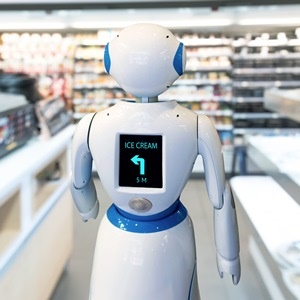
Ask anyone about surviving a robot invasion in the workplace, and many will tell you they worry that robots might take over human jobs in the near future. However, when it comes to their own jobs, their response paradoxically changes.
That’s right, when jobs are at stake, most people, in principle, prefer the idea of other people replacing them. But reality paints a different picture when people’s own jobs are on the line: employees are less upset when robots or intelligent software take over. The reason? Human replacements pose a greater threat to their feelings of self-worth.
This finding comes after a study by the Technical University of Munich (TUM) and Erasmus University in Rotterdam. Since research on how workers react to being replaced by technology is limited, researchers of the study decided to carry out 11 scenario studies and surveys involving over 2 000 people from a number of countries in Europe and North America. The results were published in Nature Human Behaviour.
Psychological impact
Since people tend to compare themselves less with machines than with other people, a robot or software replacement poses less of a threat to their feeling of self-worth, explain the authors of the study.
The authors further explain that even when participants assumed other employees would replace them – but would rely on technological abilities such as artificial intelligence in their work – there was still a reduced level of self-threat.
"Even when unemployment results from the introduction of new technologies, people still judge it in a social context," says Christoph Fuchs, a professor of the TUM School of Management and one of the authors of the study.
"It is important to understand these psychological effects when trying to manage the massive changes in the working world to minimise disruptions in society."
"For people who have lost their job to a robot, boosting their self-esteem will be less of a priority," says Fuchs. In this situation, teaching employees new skills that could possibly reduce their concerns about losing their jobs to robots is more important, added Fuchs.
The "robot revolution" has led to some pretty high fears about the future of work. Robots aren’t only able to do things that humans can, but can often do it better. Huge leaps have already been made in certain industries, where jobs at a fast food outlet in California, for example, have been taken over by robots. The BBC reports that robots will replace up to 20 million factory jobs by 2030.
The countries least prepared for the wave of robotisation include Mexico, Vietnam and Indonesia, notes Forbes – and added that, in worst-case scenarios, up to 800 million jobs could be lost globally.
In conclusion, the researchers suggest that the insights gained by the study could help to design better programmes for the unemployed.
Image: iStock




 Publications
Publications
 Partners
Partners














